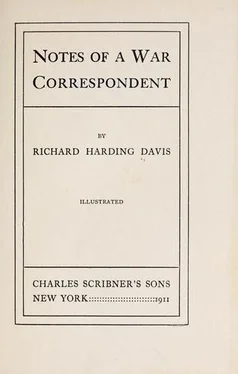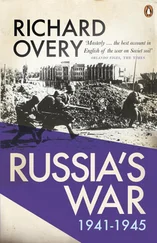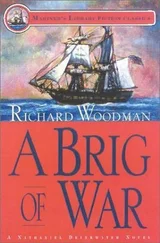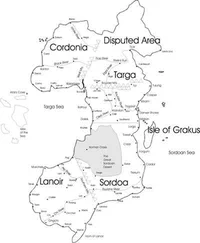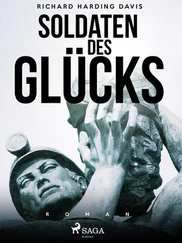Richard Davis - Notes of a War Correspondent
Здесь есть возможность читать онлайн «Richard Davis - Notes of a War Correspondent» весь текст электронной книги совершенно бесплатно (целиком полную версию без сокращений). В некоторых случаях можно слушать аудио, скачать через торрент в формате fb2 и присутствует краткое содержание. Город: New York, Год выпуска: 1911, Издательство: Charles Scribner’s Sons, Жанр: Публицистика, prose_military, на английском языке. Описание произведения, (предисловие) а так же отзывы посетителей доступны на портале библиотеки ЛибКат.
- Название:Notes of a War Correspondent
- Автор:
- Издательство:Charles Scribner’s Sons
- Жанр:
- Год:1911
- Город:New York
- ISBN:нет данных
- Рейтинг книги:5 / 5. Голосов: 1
-
Избранное:Добавить в избранное
- Отзывы:
-
Ваша оценка:
- 100
- 1
- 2
- 3
- 4
- 5
Notes of a War Correspondent: краткое содержание, описание и аннотация
Предлагаем к чтению аннотацию, описание, краткое содержание или предисловие (зависит от того, что написал сам автор книги «Notes of a War Correspondent»). Если вы не нашли необходимую информацию о книге — напишите в комментариях, мы постараемся отыскать её.
Summary by Neeru Iyer
Notes of a War Correspondent — читать онлайн бесплатно полную книгу (весь текст) целиком
Ниже представлен текст книги, разбитый по страницам. Система сохранения места последней прочитанной страницы, позволяет с удобством читать онлайн бесплатно книгу «Notes of a War Correspondent», без необходимости каждый раз заново искать на чём Вы остановились. Поставьте закладку, и сможете в любой момент перейти на страницу, на которой закончили чтение.
Интервал:
Закладка:
That is the picture of war you remember and which appeals. As a rule, people like to read of the rumble of cannon through the streets of Ventersburg, the silent, dusty columns of the re-enforcements passing in the moonlight, the galloping hoofs of the aides suddenly beating upon the night air and growing fainter and dying away, the bugle-calls from the camps along the river, the stamp of spurred boots as the general himself enters the hotel and spreads the blue-print maps upon the table, the clanking sabres of his staff, standing behind him in the candle-light, whispering and tugging at their gauntlets while the great man plans his attack. You must stop with the British army if you want bugle-calls and clanking sabres and gauntlets. They are a part of the panoply of war and of warriors. But we saw no warriors at Ventersburg that night, only a few cattle-breeders and farmers who were fighting for the land they had won from the lion and the bushman, and with them a mixed company of gentleman adventurers—gathered around a table discussing other days in other lands. The picture of war which is most familiar is the one of the people of Brussels fleeing from the city with the French guns booming in the distance, or as one sees it in “Shenandoah,” where aides gallop on and off the stage and the night signals flash from both sides of the valley. That is the obvious and dramatic side; the other side of war is the night before the battle, at Jones’s Hotel; the landlady in the dining-room with her elbows on the table, fretfully deciding that after a day in front of the cooking-stove she is too tired to escape an invading army, declaring that the one place at which she would rather be at that moment was Green’s restaurant in Philadelphia, the heated argument that immediately follows between the foreign legion and the Americans as to whether Rector’s is not better than the Café de Paris, and the general agreement that Ritz cannot hope to run two hotels in London without being robbed. That is how the men talked and acted on the eve of a battle. We heard no galloping aides, no clanking spurs, only the click of the clipped billiard balls as the American scouts (who were killed thirty-six hours later) knocked them about the torn billiard-cloth, the drip, drip of the kerosene from a blazing, sweating lamp, which struck the dirty table-cloth, with the regular ticking of a hall clock, and the complaint of the piano from the hotel parlor, where the correspondent of a Boston paper was picking out “Hello, My Baby,” laboriously with one finger. War is not so terribly dramatic or exciting—at the time; and the real trials of war—at the time, and not as one later remembers them—consist largely in looting fodder for your ponies and in bribing the station-master to put on an open truck in which to carry them.
We were wakened about two o’clock in the morning by a loud knocking on a door and the distracted voice of the local justice of the peace calling upon the landlord to rouse himself and fly. The English, so the voice informed the various guests, as door after door was thrown open upon the court-yard, were at Ventersburg Station, only two hours away. The justice of the peace wanted to buy or to borrow a horse, and wanted it very badly, but a sleepy-eyed and sceptical audience told him unfeelingly that he was either drunk or dreaming, and only the landlady, now apparently refreshed after her labors, was keenly, even hysterically, intent on instant flight. She sat up in her bed with her hair in curl papers and a revolver beside her, and through her open door shouted advice to her lodgers. But they were unsympathetic, and reassured her only by banging their doors and retiring with profane grumbling, and in a few moments the silence was broken only by the voice of the justice as he fled down the main street of Ventersburg offering his kingdom for a horse.
The next morning we rode out to the Sand River to see the Boer positions near the drift, and met President Steyn in his Cape cart coming from them on his way to the bridge. Ever since the occupation of Bloemfontein, the London papers had been speaking of him as “the Late President,” as though he were dead. He impressed me, on the contrary, as being very much alive and very much the President, although his executive chamber was the dancing-hall of a hotel and his roof-tree the hood of a Cape cart. He stood in the middle of the road, and talked hopefully of the morrow. He had been waiting, he said, to see the development of the enemy’s attack, but the British had not appeared, and, as he believed they would not advance that day, he was going on to the bridge to talk to his burghers and to consult with General Botha. He was much more a man of the world and more the professional politician than President Kruger. I use the words “professional politician” in no unpleasant sense, but meaning rather that he was ready, tactful, and diplomatic. For instance, he gave to whatever he said the air of a confidence reserved especially for the ear of the person to whom he spoke. He showed none of the bitterness which President Kruger exhibits toward the British, but took the tone toward the English Government of the most critical and mused tolerance. Had he heard it, it would have been intensely annoying to any Englishman.
“I see that the London Chronicle ,” he said, “asks if, since I have become a rebel, I do not lose my rights as a Barrister of the Temple? Of course, we are no more rebels than the Spaniards were rebels against the United States. By a great stretch of the truth, under the suzerainty clause, the burghers of the Transvaal might be called rebels, but a Free Stater—never! It is not the animosity of the English which I mind,” he added, thoughtfully, “but their depressing ignorance of their own history.”
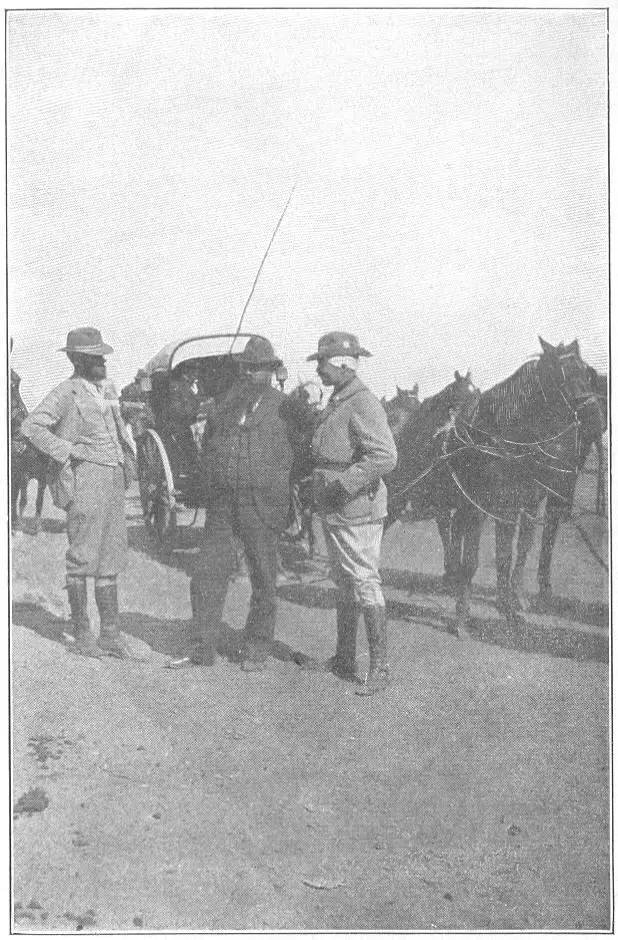
His cheerfulness and hopefulness, even though one guessed they were assumed, commanded one’s admiration. He was being hunted out of one village after another, the miles of territory still free to him were hourly shrinking—in a few days he would be a refugee in the Transvaal; but he stood in the open veldt with all his possessions in the cart behind him, a president without a republic, a man without a home, but still full of pluck, cheerful and unbeaten.
The farm-house of General Andrew Cronje stood just above the drift and was the only conspicuous mark for the English guns on our side of the river, so in order to protect it the general had turned it over to the ambulance corps to be used as a hospital. They had lashed a great Red Cross flag to the chimney and filled the clean shelves of the generously built kitchen with bottles of antiseptics and bitter-smelling drugs and surgeons’ cutlery. President Steyn gave me a letter to Dr. Rodgers Reid, who was in charge, and he offered us our choice of the deserted bedrooms. It was a most welcome shelter, and in comparison to the cold veldt the hospital was a haven of comfort. Hundreds of cooing doves, stumbling over the roof of the barn, helped to fill the air with their peaceful murmur. It was a strange overture to a battle, but in time I learned to not listen for any more martial prelude. The Boer does not make a business of war, and when he is not actually fighting he pretends that he is camping out for pleasure. In his laager there are no warlike sounds, no sentries challenge, no bugles call. He has no duties to perform, for his Kaffir boys care for his pony, gather his wood, and build his fire. He has nothing to do but to wait for the next fight, and to make the time pass as best he can. In camp the burghers are like a party of children. They play games with each other, and play tricks upon each other, and engage in numerous wrestling bouts, a form of contest of which they seem particularly fond. They are like children also in that they are direct and simple, and as courteous as the ideal child should be. Indeed, if I were asked what struck me as the chief characteristics of the Boer I should say they were the two qualities which the English have always disallowed him, his simplicity rather than his “cuteness,” and his courtesy rather than his boorishness.
Читать дальшеИнтервал:
Закладка:
Похожие книги на «Notes of a War Correspondent»
Представляем Вашему вниманию похожие книги на «Notes of a War Correspondent» списком для выбора. Мы отобрали схожую по названию и смыслу литературу в надежде предоставить читателям больше вариантов отыскать новые, интересные, ещё непрочитанные произведения.
Обсуждение, отзывы о книге «Notes of a War Correspondent» и просто собственные мнения читателей. Оставьте ваши комментарии, напишите, что Вы думаете о произведении, его смысле или главных героях. Укажите что конкретно понравилось, а что нет, и почему Вы так считаете.
